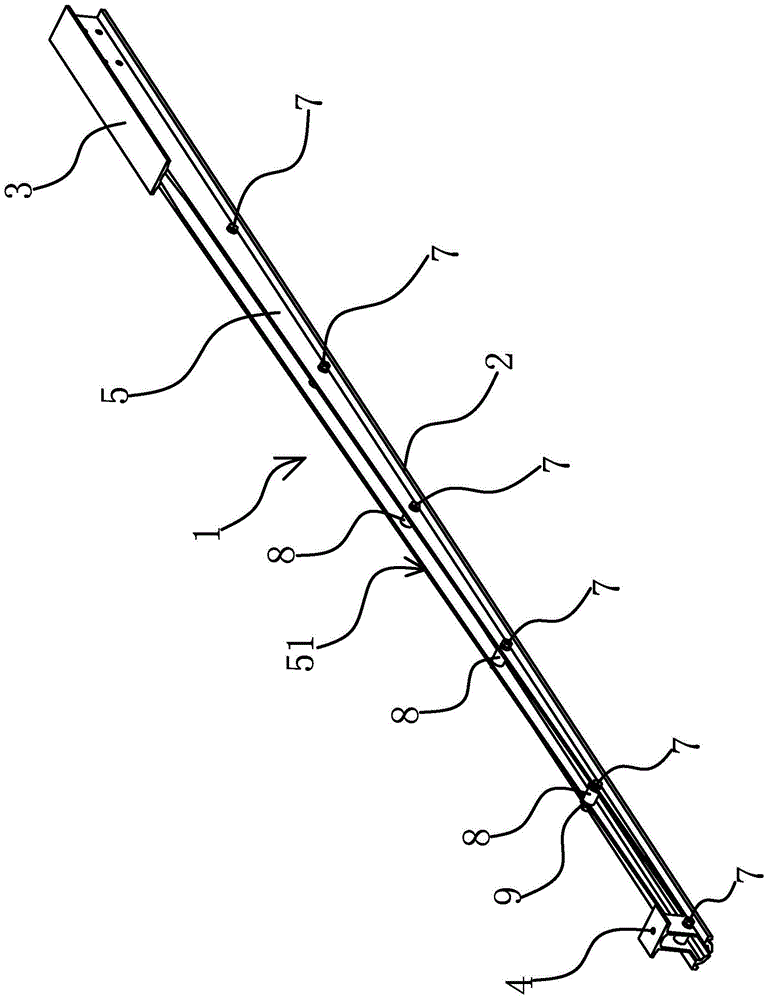A Rigid-Flexible Transitional Busbar
A busbar, rigid and flexible technology, applied in the field of electrified railway and urban rail transit overhead catenary, can solve the problems of weak hard point, high production cost, inconvenient processing, etc. Good results
- Summary
- Abstract
- Description
- Claims
- Application Information
AI Technical Summary
Problems solved by technology
Method used
Image
Examples
Embodiment 2
[0043] The technical solution in this embodiment is basically the same as that in the first embodiment. The difference is that in this embodiment, the transition slope 51 is distributed along a continuous curve. The continuous curve distribution form is used to remove more material on the rigid-flex transition part 5 by wire cutting, which reduces the weight of the rigid-flexible transition busbar, making the rigid-flexible transition busbar lighter for transportation and installation, and the entire transition process More smooth and natural. In the actual production and manufacturing process, the curve is a multi-radian shear curve, involute curve, parabola or elliptic curve. According to the length and size requirements of the rigid-flexible transition busbar and actual production and installation requirements, a variety of curves can be used as reference curves for processing the rigid-flexible transition portion 5.
Embodiment 3
[0045] The technical solution in this embodiment is basically the same as the technical solution in Embodiment 1 or Embodiment 2, except that in this embodiment, the thickness of the cylinder wall of the positioning sleeve 8 is 5 mm.
Embodiment 4
[0047] The technical solution in this embodiment is basically the same as the technical solution in Embodiment 1 or Embodiment 2, except that, in this embodiment, the thickness of the cylinder wall of the positioning sleeve 8 is 10 mm.
PUM
 Login to View More
Login to View More Abstract
Description
Claims
Application Information
 Login to View More
Login to View More - R&D
- Intellectual Property
- Life Sciences
- Materials
- Tech Scout
- Unparalleled Data Quality
- Higher Quality Content
- 60% Fewer Hallucinations
Browse by: Latest US Patents, China's latest patents, Technical Efficacy Thesaurus, Application Domain, Technology Topic, Popular Technical Reports.
© 2025 PatSnap. All rights reserved.Legal|Privacy policy|Modern Slavery Act Transparency Statement|Sitemap|About US| Contact US: help@patsnap.com



